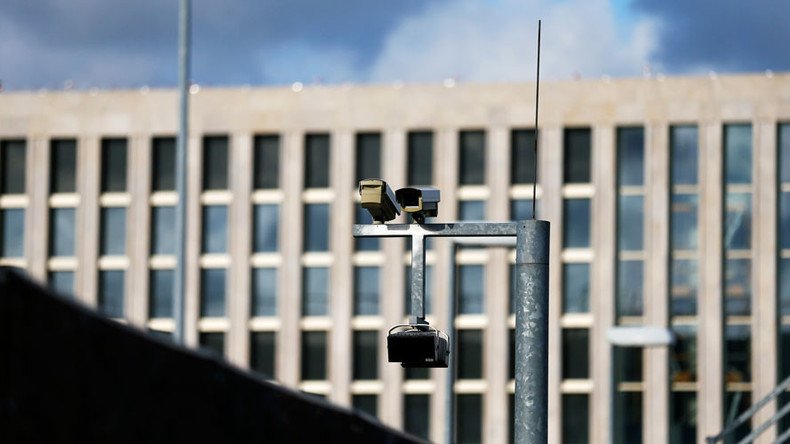‘Bad day for democracy’: German court rejects calls for disclosure of NSA spy targets

Germany's highest court has rejected the opposition parties’ bid to make the government reveal to a parliamentary commission investigating the activities of the US NSA spy agency in Germany, the spy targets they had jointly worked on.
The head of the Left Party in the NSA parliamentary commission, Martina Renner, said the ruling was a “bad day for democracy,” which signaled that the “secret services can continue doing what they want, undisturbed by parliamentary control," Zeit reported.
The ruling is a response to a complaint filed by two opposition parties, The Greens and the Left Party, in September 2015 following reports that the Bundesnachrichtendienst (BND) intelligence agency had collaborated with the NSA, helping it eavesdrop on European firms and prominent politicians.
The Constitutional Court's October ruling, that was made public only this Tuesday, said the US was against sharing the sensitive spy target list, and doing so without US permission would hamper German intelligence agencies' ability to cooperate with counterparts in the future, Reuters reported.
Anna Biselli of the digital research organization Netzpolitik called the Constitutional Court’s ruling “a blow for any clarification on the activities of the BND and the NSA and for the entire parliamentary monitoring of secret services.”
“The government has been successful with its universal argument that the state's welfare is in danger if the list is revealed. Unfortunately, this argument is widely used to avoid giving out information. This makes the parliament's job of monitoring the BND effectively very difficult, although that is exactly one of its responsibilities,” she told Deutsche Welle.
Biselli said that one of the commission's key tasks was to look into the selectors list, which included search parameters from the NSA that the German spy agency to track millions of surveillance targets worldwide.
“The commission wanted to look into the list of selectors because it wanted to know which targets the BND illegally spied on for the NSA,” Biselli said. In the course of its investigation, it was found that the BND monitored sensitive targets, including European governments, institutions and corporations.
“There were several million, probably 13 to 14 million selectors [used to spy on targets], controlled together with the NSA over the course of 10 years,” Greens politician Konstantin von Notz, who is on the parliamentary committee investigating NSA activities, said in an interview with Deutschlandfunk on Wednesday.
“There are probably hundreds of thousands, perhaps even millions, of European and German victims. There will be companies, journalists, probably politicians monitored for years, and this is unpleasant at the very least, and it will all remain under the seal of secrecy,” he added.
The NSA spied on German chancellors and their offices for over a decade, a WikiLeaks report revealed last year. Leaked NSA intercepts indicated that the US tapped the phones of the political offices of the last three German chancellors – Angela Merkel, Gerhard Schröder (in office 1998–2002) and Helmut Kohl (chancellor from 1982 to 1998) – and targeted at least 125 phone numbers of top German officials.
Another scandalous revelation made in April last year suggested that the German BND foreign intelligence agency helped the NSA spy on European firms and officials.














